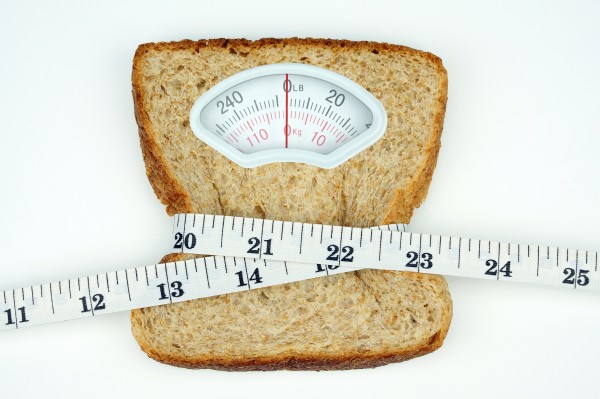Losing weight on a gluten-free diet - is it really possible?
Gluten-free diets are currently the talk of the town for anyone wanting to lose weight. But what is behind it? Is gluten responsible for our “love handles”? The answer is “no”, but a gluten-free diet combined with a healthy lifestyle can lead to significant weight loss - so let's shed some light on this.
What is gluten?
Gluten is a protein that is found in wheat, rye, barley and related cereals and therefore in foods such as pasta or bread, as well as being added to countless processed convenience products for technological reasons. Gluten itself is made up of amino acids, some of which are difficult for us to digest. For this reason alone, consumption should be limited.
What is the difference between coeliac disease and gluten sensitivity?
Some people have to live gluten-free because they have coeliac disease. Coeliac disease is an immunological disease of the intestine triggered by even very low gluten intake. The body's own immune response to gluten damages the mucous membrane of the small intestine and leads to a regression of the intestinal villi. The symptoms can be varied and range from abdominal pain, flatulence, nausea and diarrhea to anemia and growth disorders, especially in children. In untreated coeliac disease, the absorption of nutrients such as vitamins and minerals is generally significantly reduced and often leads to drastic weight loss.
Other people avoid gluten because of gluten sensitivity. This non-celiac gluten sensitivity (NCGS) causes very similar symptoms to celiac disease but without an immune response. People who are gluten sensitive have an individual tolerance threshold of how much gluten is tolerated without developing symptoms.
Why do people avoid gluten to lose weight?
There is absolutely no evidence that simply removing gluten from foods or avoiding gluten-containing foods will lead to weight loss. However, eating gluten-free frequently can lead to an increase in unprocessed whole foods such as fruit, vegetables, pulses and lean meat in your diet. This change in diet is usually much healthier and lower in calories.
People on a gluten-free diet also tend to choose healthier foods as they are aware of the need to read food labels.
Swapping the cheeseburger and fries for a gluten-free meal of salad, chicken breast and sweet potato means choosing a much lower calorie meal. This can lead to natural weight loss over time.
Aren't all gluten-free foods healthy?
Gluten-free does not necessarily mean healthy, as all gluten-free foods are not equally nutritious.
An apple and a “gluten-free” sugar cookie are both gluten-free, but their nutrients and energy content vary drastically.
Supermarkets, drugstore chains and health food stores are full of gluten-free cakes, cookies, sweet treats and convenience foods. These foods are often high in sugar and fat, which naturally makes them high in calories. So make sure you read the food labels and nutritional information before you buy anything!
Is it safe to eat a gluten-free diet even if you don't have coeliac disease or gluten sensitivity?
Absolutely! Some people, including many well-known professional athletes, for example, opt for a gluten-free diet because a conscious gluten-free food choice gives them structure for healthier eating and a healthy lifestyle.
It is important to eat a varied and balanced diet rich in fruit, vegetables and pulses to avoid vitamin and mineral deficiencies and to provide the body with sufficient fiber. In addition, care should be taken to ensure sufficient fluid intake, a healthy normal weight with a BMI between 18.5-24.9 and a healthy lifestyle with plenty of exercise.
The bottom line
A gluten-free diet is usually followed by people who cannot tolerate gluten due to intolerances such as coeliac disease or gluten sensitivity, i.e. for pathophysiological reasons. However, some people choose to follow a gluten-free diet in order to eat healthier.
There is no harm in avoiding gluten as long as you continue to eat a balanced diet rich in fruit, vegetables and pulses. So make sure that your choice of gluten-free foods and grain substitutes such as buckwheat, quinoa or brown rice consists mainly of whole grains.
You will only lose weight if you consume more calories or energy than you eat and not by avoiding gluten or eating gluten-free convenience foods. And remember that in addition to diet, regular physical activity is also an important part of weight management and a healthy lifestyle.
